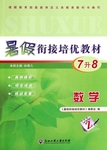
C
We have met the enemy, and he is ours. We bought him at a pet shop. When monkey-pox, a disease usually found in the African rain forest, suddenly turns up in children in the American Midwest, it’s hard not to wonder if the disease that comes from foreign animals is homing in on human beings. “Most of the infections (感染) we think of as human infections started in other animals,” says Stephen Morse, director of the Center for Public Health Preparedness at Columbia University.
It’s not just that we’re going to where the animals are; we’re also bringing them closer to us. Popular foreign pets have brought a whole new disease to this country. A strange illness killed Isaksen’s pets, and she now thinks that keeping foreign pets is a bad idea. “I don’t think it’s fair to have them as pets when we have such a limited knowledge of them,” says Isaksen.
“Laws allowing these animals to be brought in from deep forest areas without stricter control need changing,” says Peter Schantz. Monkey-pox may be the wake-up call. Researchers believe infected animals may infect their owners. We know very little about these new diseases. A new bug (病毒) may be kind at first. But it may develop into something harmful. Monkey-pox doesn’t look a major infectious disease. But it is not impossible to pass the disease from person to person.
60. We learn from Paragraph 1 that the pet sold at the shop may _________.
A. come from Columbia B. prevent us from being infected
C. enjoy being with children D. suffer from monkey-pox
61. Why did Isaksen advise people not to have foreign pets?
A. They attack human beings. B. We need to study native animals.
C. They can’t live out of the rain forest. D. We do not know much about them yet.
62. What does the phrase “the wake-up call” in Paragraph 3 most probably mean?
A. a new disease B. a clear warning
C. a dangerous animal D. a morning call
63. The text suggests that in the future we _______.
A. may have to fight against more new diseases
B. may easily get infected by diseases from dogs
C. should not be allowed to have pets
D. should stop buying pets from Africa
 新课标快乐提优暑假作业陕西旅游出版社系列答案
新课标快乐提优暑假作业陕西旅游出版社系列答案 暑假衔接培优教材浙江工商大学出版社系列答案
暑假衔接培优教材浙江工商大学出版社系列答案科目:高中英语 来源: 题型:单选题
查看答案和解析>>
科目:高中英语 来源: 题型:
--- I think we have met the word before.
--- Yes. It is in the reading material ____ we ____ reading yesterday.
A. that; did B. that; were C. when; were D. when; did
查看答案和解析>>
科目:高中英语 来源:2015届江苏阜宁县沟墩中学高一下期期末考试英语卷(解析版) 题型:单项填空
It is ________ the customers' needs that has made chain stores so popular in big cities in China.
A. meeting B. met C. to have met D. being met
查看答案和解析>>
科目:高中英语 来源:2011-2012学年安徽省高三英语综合测试题二 题型:阅读理解
I moved into a new house in July. Since then I have met a few of my neighbors who are very nice people. For Christmas, I thought I would do something nice for each of the neighbors I know. There were nine neighbors whom I knew by name or spoke with often when I was out in my yard. I knew which houses they lived in.
I decided to add one more to my list. This lady I decided to add lives down the street from me. I meet her every morning walking to work as I drive down the street. She always smiles to me. But I had no idea who she was and which house she lived in.
I planned to make small fruit baskets and leave them on my neighbor's front porches (门廊) on Christmas Eve. I signed the cards: “Happy Holidays from 5104 Northumberland Road.”
I saved the last for the friendly lady. I finally decided on a house where I met her each morning and guessed that it was hers.
My neighbors really appreciated the baskets and would tell me as they saw me in the yard or they would call, and a couple even came by to thank me.
This morning I found a small note in the mailbox. It was addressed simply: Resident, 5104 Northumberland Road.
The Thank You card really caught me by surprise. I opened it and read the message, “Thank you for the lovely fruit basket you left on our porch. It was very thoughtful. Richard Kelly passed away last week. He talked a lot about how nice it was that someone remembered him in his time of illness. He really appreciated it.”
I had no idea who Richard Kelly was and that he had been seriously ill. I had left that nice lady’s basket on his porch by mistake. I wanted to say sorry, but that would be wrong. I believe that Mr. Kelly was meant to have that basket because he was dying. I hate that the nice lady did not get to receive a fruit basket on Christmas, but I believe if she knew what had happened, she would be happy. I feel pleased to have helped Richard Kelly's last days be more cheerful.
1.How many Christmas gifts did the author intend to send?
A. 9. B. 8 C. 10 D. 11
2.Where did the friendly lady live?
A. She lived at the end of Northumberland Road.
B. Her address was 5104 Northumberland Road.
C. She was thought to share a house with Mr. Kelly.
D. The author was not sure about her address at all.
3.How did the author’s neighbors respond to his gifts?
A. They liked the gifts very much and were thankful.
B. They were thankful that they wanted to be friends.
C. They all made phone calls to say “Thank You”.
D. They all visited him by person to show gratitude.
4.What does the author mean in the last paragraph?
A. He was regretful that the nice lady didn’t receive his gift.
B. He was glad to have made Mr. Kelly's life more pleasant.
C. He thought Richard Kelly deserved to receive that basket.
D. The old lady was happy to sacrifice to make Kelly happy.
查看答案和解析>>
湖北省互联网违法和不良信息举报平台 | 网上有害信息举报专区 | 电信诈骗举报专区 | 涉历史虚无主义有害信息举报专区 | 涉企侵权举报专区
违法和不良信息举报电话:027-86699610 举报邮箱:58377363@163.com